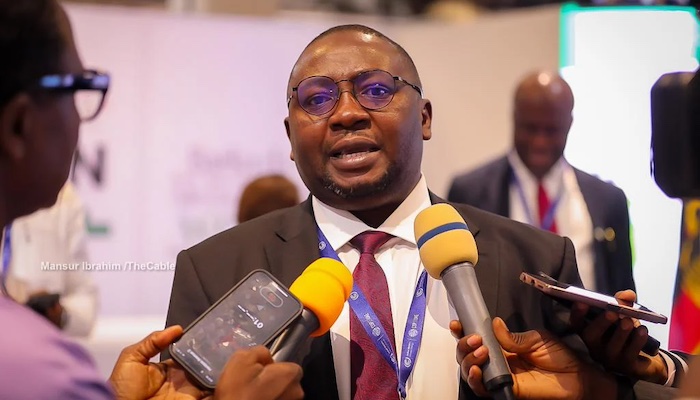
The federal government is set to revive the Aluminium Company of Nigeria (ALSCON), Ikot Abasi, Akwa Ibom State, managed by Rusal, by ensuring its connection to the national electricity grid.
When fully operational, the government said the plant will in turn add 540 megawatts of electricity to the grid, while providing direct and indirect employment opportunities for about 15,000 Nigerian professionals and the youth population.
Minister of Power, Chief Adebayo Adelabu, made this commitment when he paid a working visit to the company in Ikot Abasi, where he lamented that 37 years after its establishment, lack of alternative electricity supply has hindered the country from benefiting from the huge investment.
While addressing the management, Adelabu promised a temporary solution that would see the company being connected to the grid, while work on a long-term solution continues.
On the long abandoned Niger Delta Power Holding Company (NDPHC)-owned 330KVA substation in the community, which was about 90 per cent completed at the time it was abandoned, Adelabu said efforts would be made to ensure its completion within the shortest possible time.
The Minister noted that ALSCON was conceived in 1989, but not completed until 1998, adding that with the privatisation programme of the federal government in 2006, the company was taken over by Aluminium Smelting Company of Russia.
“These huge investments by the country have suffered from lack of power supply in the last 27 years, as they have not been connected to the grid, and we are very much aware of the huge potential of an institution like this in the upstream, midstream and downstream conversion of aluminium.
“They can create a lot of employment for our teeming youths, serve as a supplier of raw materials to every downstream aluminium company and save us huge foreign exchange for imports of these raw materials,” he stated.
He said the federal government was taking crucial steps to make provision of electricity to the majority of Nigerians by 2030, in line with vision 2030 at the Tanzania declaration.
“I have come to visit the company to discuss with the owners of the company, and all the other stakeholders, the Transmission Company of Nigeria (TCN), the Niger Delta Power Holding Company (NDPHC), and all the contractors involved, to devise an immediate solution to solve the power problem this company has been facing.
“I am happy that we made very good progress with this meeting. We have determined what the short-term solution is to connect this company, this institution to the national grid, and we have also agreed on what the medium-term solution should be.
“But the most important part of this meeting is the fact that the company also has the potential of supplying 540 MW of power onto the national grid when fully completed,” Adelabu stated.
According to him, the company has an installed capacity of 540 MW, comprising six turbines of 90 MW each, which are still in very good condition. “Once all the infrastructure are put in place, the 330/132KV substation, which is being constructed by the Niger Delta Power Holding Company, together with the 330kv DC lines from Ikot- Ekpene to Ikot-Abasi, we will be able to evacuate the entire of this 540 MW to the national grid”, he said.
According to him, there is even the possibility of expanding this by about 120 MW, since it is an open circuit line which can be made a combined circuit, by which an additional 20 MW per turbine can be added to make 660 MW of power.
“All we need to do now is to go back and work on all the agreed action lines, which I will personally supervise. And I believe that once, within the next 90 days, we’re able to achieve the short-term solution, the country will feel the impact of this company beginning operations.
From the number of employment they will generate for us in the country, they have the potential of employing up to 3,000 employees here”.
The Minister reiterated the relevance of the company in the supply of raw materials to a lot of downstream aluminium companies. “This will save us millions of dollars from foreign exchange.
“We know the impact of this on our nation, on our Federal Reserve, and the impact of this on our Gross Domestic Product, (GDP). So, it’s a company that we believe is going to add a lot to the fortune and prosperity of the country, and of the people of Nigeria,” he added.
Speaking on the gas supply challenge, Adelabu said everything depends on arriving at an appropriate business decision.
“If the price is right, the gas company will supply, because it’s a highly competitive market, and the preference will be given to those that pay higher. So we believe they can sit down with the gas companies and agree on a commercially viable price and ensure that gas is supplied.
“That’s the least of the problems here. I believe this can be resolved with appropriate pricing. The gas pipeline is working very well. There’s a power company here that is getting gas. This is less than 500 meters from here. So the gas pipeline is working well. It’s a matter of agreeing to the correct price, or the right price, with the gas company, and the turbines will be fired immediately”, he said.
Earlier, Viacheslav Krylov, Development Advisor had spoken on the challenges in ALSCON which had hampered operation since the presidential directives in July 2024 to restart operations in the plant.
He said plans had started to ensure projection to achieving full production capacity of 200, 000 MT in the sixth year with over 15, 000 direct and indirect employment for Nigerians.
He noted that smelting is a power-intensive process requiring continuous, stable and high-volume supply of electricity to operate efficiently and effectively, adding that the plant has a total capacity of 540MW, out of which 360MW would be available at peak operation.
“He however noted that the plant could not begin operation as there is no alternative source of electricity if the in- house plant fails due to gas supply problems. “ The current energy options at the plant are therefore completely inadequate to restart the plant”, he said.
He therefore appealed for an enhanced grid stability, dedicated back up power and the exploration of strategic power purchase agreements to ensure the plant’s long-term operational and financial stability.
“Of significant importance is the wheeling of excess power generation to the grid from ALSCON. This would improve the daily national grid capacity and revenue generation for the company’s sustenance,” Krylov said.
Emmanuel Addeh



